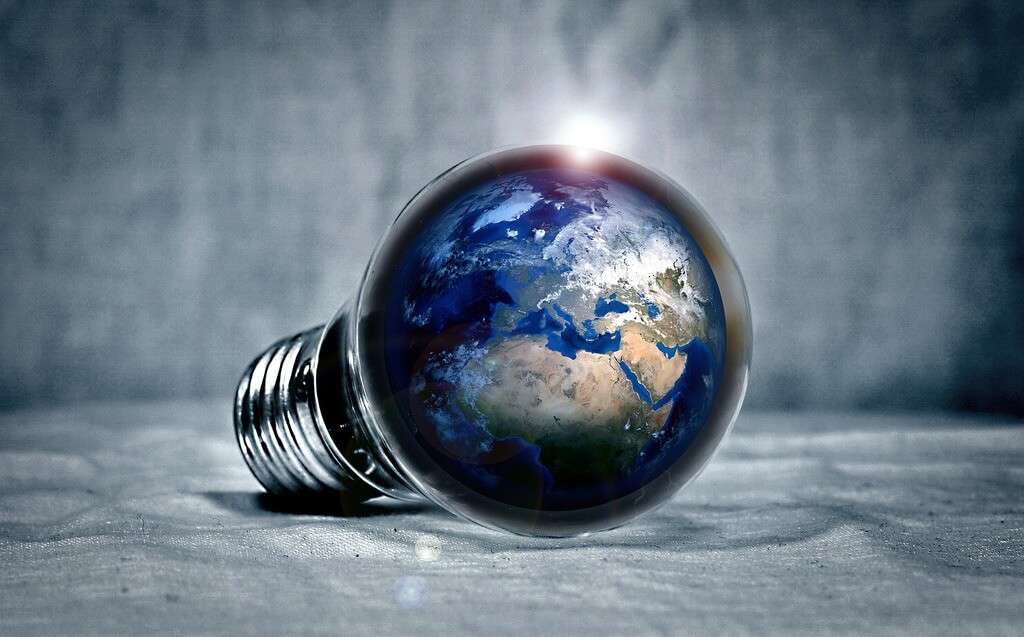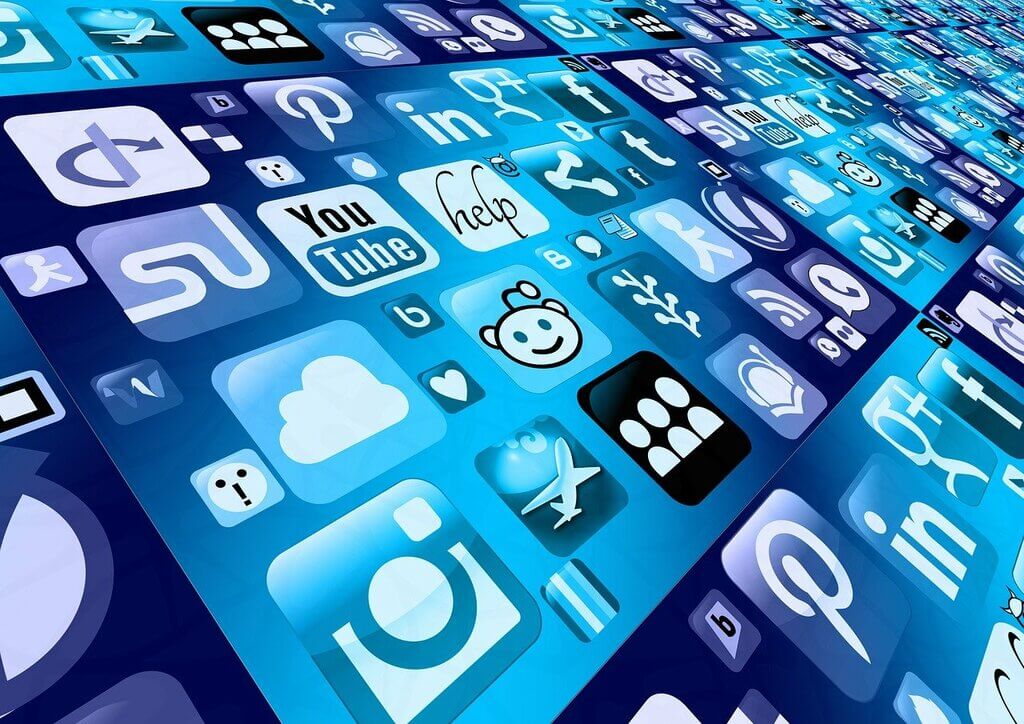The computer is known as the greatest invention of mankind. It is evidence of human ingenuity and revolutionized the way people live. It has become an essential part of life. Without these computers, many will cease functioning, and everything will be troublesome.

In 1821, a mathematician named Charles Babbage conceptualized an automatic calculating machine. His first invention was the Difference Engine. He innovated this idea and created a more complicated device called the Analytical Engine. These tools were not perfect. But it was a starting point for modern computer designs.
At present, the computer is no longer limited to computations. Its application expanded to entertainment, medical technology, communication, transportation, and information sharing. The flexibility of computers is now further explored with the rise of automation, big data, and artificial intelligence. It has a promising future for further development. It is exciting to anticipate how far can its outstanding computing power go.

The invention that had the biggest impact on humanity was the printing press. While there is a history of printing and movable type in China from before the year 1,000 ACE, the Western world got the printing press from Johannes Gutenberg. He began his invention in 1440 and published the Gutenberg Bible in 1452.
Before the invention of the Gutenberg printing press, books were hand-written. Because they involved so much labor, they were only available to the very wealthy or those in religious life. Indeed, one of the first revolutions that sprang from the Gutenberg press was a religious one, as the ordinary people created and shared tracts and pamphlets that criticized the church hierarchy.

The stranglehold on information that was a part of everyday life in the years leading up to mass-produced books was loosened. Printing technology spread across Europe with tremendous speed, and in 1605 the first newspaper was published in Strasbourg.
Innovators throughout history have conceived of many groundbreaking inventions. Some have had an indelible impact on the lives of millions of people. It’s difficult to single out only one such invention. Let’s first consider 10 of the most impactful inventions.
- The Wheel: It unleashed greater freedom of motion and transport.
- The Compass: This earliest navigational tool paved the way for explorers and the future of travel.
- The Printing Press: As the world population increased, communication between nations became essential. The significance of printing cannot be discounted.
- The Telephone: Communication became audible. All future remote communication is based on telephones.
- Steam Engine: Increasing populations and demand for goods necessitated a faster means of transport. It became the foundation for future engines.
- Antibiotics: The continued increase in world population coincided with the spread of diseases. With antibiotics, countless lives were able to be saved.
- The Automobile: A logical progression from the steam engine. It helped personalize transportation for most people.
- Electricity: Almost everyone uses electricity to some extent. It is inconceivable for modern people to imagine a world without electricity.
- The Computer: Much communication today is done online. Both business and personal communication are now routinely done online.
- The Internet: Although the computer was beneficial before the internet, unleashing the online world has made our future seem limitless.
Of these, it seems logical to conclude electricity has had a foundational impact on several others. Electricity influences every sphere in which we exist and operate. It provides illumination for our homes, storage and processing systems for our food, and a source of entertainment. Electricity provided an essential foundation for the telephone, the computer, and the internet. As these processes are now a vital part of our daily lives, we owe their origin to electricity.

What Is The Greatest Invention Of Man?
In the vast tapestry of human history, woven with innovation, creativity, and boundless curiosity, one question perennially lingers: What is the greatest invention of man? From the wheel to the internet, the trajectory of human progress is marked by groundbreaking creations that have shaped civilizations and transformed the way we live. Identifying a singular pinnacle among these marvels is a daunting task, as the answer often depends on individual perspectives. However, as we delve into the annals of invention, certain contenders emerge that have left an indelible mark on the course of humanity.
The Written Word: Catalyst Of Civilization
Among the contenders for the title of the greatest invention of mankind, the written word stands as a towering monument to human ingenuity. The ability to convey thoughts, ideas, and knowledge through a system of symbols and characters transcended the boundaries of time and space, allowing civilizations to communicate across generations. The written word became the repository of our collective wisdom, preserving the narratives of the past and guiding the aspirations of the future.
Ancient civilizations, such as the Sumerians, Egyptians, and Chinese, independently developed written languages that laid the foundation for the written word’s ubiquity in human culture. The advent of the printing press in the 15th century further democratized knowledge, making books more accessible and fostering a Renaissance of ideas. The written word became the bridge that connected minds across centuries, fostering a continuous dialogue that transcends the limitations of spoken language.

As we reflect on the evolution of communication, it becomes evident that the written word is not merely a tool but a catalyst for civilization itself. From religious scriptures to scientific treatises, literature to legal codes, the written word has been instrumental in shaping cultural identities, advancing knowledge, and preserving the essence of human experience. It is through the power of the written word that ideas have been immortalized and civilizations have found a common thread, making it a compelling candidate for the greatest invention of mankind.
The Machine Age: Harnessing Power And Precision
In the tapestry of human history, the Industrial Revolution stands as a watershed moment, ushering in an era of unprecedented technological advancement. At the heart of this transformative period lies a contender for the title of the greatest invention of mankind: the steam engine. Conceived by visionaries like James Watt in the 18th century, the steam engine marked a paradigm shift in harnessing energy, propelling humanity into the machine age.
The steam engine, with its capacity to convert heat into mechanical energy, powered locomotives, factories, and ships, reshaping the economic and social fabric of society. It catalyzed the rise of industrialization, allowing for mass production and the efficient transportation of goods. The mechanization of labor, though not without its challenges, propelled economies forward and laid the groundwork for subsequent innovations, such as the internal combustion engine and electric power.
The machine age not only revolutionized production but also transformed the way people lived, worked, and interacted. It accelerated urbanization, spurred technological innovation, and contributed to the rise of modern cities. The ripple effects of the steam engine’s invention extended far beyond its mechanical components, setting the stage for the interconnected world we inhabit today.
The Digital Frontier: Information Revolution
As we traverse the corridors of time, we encounter a contender for the title of the greatest invention of mankind that resonates with the pulse of the modern age: the computer. The advent of computing technology, particularly the development of the microprocessor, has ushered in an era of unparalleled connectivity and information access. In a world where knowledge is power, the computer has become the catalyst for the information revolution.

The ability to process, store, and retrieve vast amounts of data at unprecedented speeds has transformed the way we work, communicate, and navigate the world. From personal computers to smartphones, the digital frontier has given rise to a connected society, breaking down geographic barriers and fostering a global exchange of ideas. The internet, an offspring of the computer age, has become the virtual tapestry that binds humanity in a web of information and communication.
The impact of the digital revolution extends beyond the realms of personal computing. Fields such as medicine, science, and entertainment have witnessed groundbreaking advancements propelled by the computational power of machines. Artificial intelligence, born from the marriage of algorithms and computing prowess, holds the promise of reshaping the very fabric of human existence.
Reflections On The Greatest Invention Of Mankind
As we navigate the labyrinth of human invention, the question of the greatest invention of mankind eludes a definitive answer. The written word, the steam engine, and the computer each represent epochs in human progress, leaving an indelible mark on the canvas of history. The written word, with its power to preserve and disseminate knowledge, laid the foundation for civilizations to flourish. The steam engine, emblematic of the machine age, propelled humanity into an era of unprecedented industrialization. The computer, heralding the digital frontier, has transformed the way we access and interact with information.
In the quest to identify the paramount invention, it is crucial to recognize that these contenders are not isolated phenomena but interconnected chapters in the story of human ingenuity. The written word paved the way for the exchange of ideas, laying the groundwork for the machine age, which, in turn, set the stage for the information revolution. Each era is built upon the innovations of the past, creating a tapestry woven with the threads of progress.
The greatest invention of mankind is a subjective and nuanced concept, shaped by individual perspectives and contextual considerations. The written word, the steam engine, and the computer stand as pillars of human achievement, each contributing to the collective narrative of our journey through time. Perhaps the true answer lies not in singling out one invention but in appreciating the interconnected web of innovation that has propelled us forward. As we stand at the precipice of the future, it is this continual pursuit of knowledge, fueled by the inventions of the past, that defines the essence of human progress and cements our place as architects of the future. The greatest invention of mankind, it seems, is not a singular entity but a tapestry woven with the threads of human ingenuity and the relentless pursuit of knowledge.
What Are The Most Important Inventions Of Mankind?
In the grand tapestry of human history, certain inventions stand as monumental pillars, shaping the trajectory of civilizations and defining the essence of progress. From rudimentary tools to sophisticated technologies, mankind has witnessed a remarkable journey of innovation. In this exploration, we delve into the most important inventions that have propelled us forward, each contributing to the mosaic of human advancement.

The Wheel: Revolutionizing Mobility And Industry
One cannot embark on a discussion of the most important inventions without paying homage to the wheel. Emerging around 3500 BC in Mesopotamia, the wheel revolutionized the way humans moved and transported goods. Initially used in potter’s workshops for shaping clay, the wheel’s application expanded exponentially.
The development of wheeled vehicles, from simple carts to sophisticated chariots, transformed agriculture, trade, and warfare. The wheel laid the foundation for the creation of machines, facilitating the evolution of complex systems that propelled us into the industrial age. It is no exaggeration to consider the wheel as one of the greatest inventions of mankind, for its impact resonates across millennia, transcending geographical and cultural boundaries.
The Printing Press: Democratizing Knowledge
Fast forward to the 15th century, and we encounter another contender for the title of the greatest invention of mankind: the printing press. Invented by Johannes Gutenberg around 1440, the printing press marked a paradigm shift in the dissemination of knowledge. Before its advent, books were painstakingly copied by hand, limiting their availability to a privileged few.
The printing press democratized information, making books more accessible to a broader audience. The mass production of literature fostered the Renaissance, enabling the widespread distribution of scientific, philosophical, and literary works. This invention laid the groundwork for the Scientific Revolution and the Enlightenment, shaping the intellectual landscape of the modern world. The printing press’s transformative power in democratizing knowledge solidifies its place among the most important inventions of mankind.
Penicillin: The Pinnacle Of Medical Innovation
The realm of medicine witnessed a watershed moment with the discovery of penicillin by Alexander Fleming in 1928. This serendipitous finding marked the dawn of the antibiotic era, revolutionizing the treatment of bacterial infections. Penicillin’s extraordinary ability to combat pathogens paved the way for a myriad of other antibiotics, fundamentally altering the course of medicine and saving countless lives.
The development of antibiotics not only revolutionized infectious disease treatment but also laid the foundation for modern surgery and medical procedures. It transformed previously life-threatening conditions into manageable ones, significantly increasing life expectancy. The impact of penicillin on public health and medicine makes it one of the most important inventions in the annals of mankind.
The Internet: Connecting The Global Village
As we hurtle through the Information Age, the internet emerges as a paramount invention that has redefined the way we communicate, access information, and conduct business. Conceived in the late 20th century, the internet has evolved into a sprawling network that transcends borders, creating a global village where ideas flow freely.

The internet has democratized communication, enabling instantaneous connections across continents. Social media platforms have given individuals a powerful voice, fostering unprecedented levels of connectivity and collaboration. Beyond communication, the internet has transformed industries, from commerce to education, propelling us into an era of digital innovation.
In the context of the most important inventions of mankind, the internet occupies a unique position, serving as the backbone of the modern world. Its impact on society, culture, and commerce is so profound that it is often regarded as the greatest invention of mankind in the 21st century.
Electricity: Illuminating The Path Of Progress
No exploration of the most important inventions can be complete without acknowledging the revolutionary impact of electricity. The harnessing of electrical power, exemplified by the work of pioneers like Thomas Edison and Nikola Tesla, illuminated the world in ways previously unimaginable.
Electricity transformed industries, powering factories and spurring the development of new technologies. It brought light into homes, extended the workday, and fundamentally altered the fabric of daily life. The advent of electric motors revolutionized transportation and manufacturing processes, accelerating the pace of progress.
Moreover, electricity laid the foundation for the digital age, powering the computers and electronic devices that have become indispensable in the contemporary world. Its role as a catalyst for progress cannot be overstated, cementing electricity as one of the most important inventions that shaped the modern era.
The Greatest Invention Of Mankind: A Tapestry Of Innovation
As we reflect on the most important inventions of mankind, it becomes evident that these creations form a tapestry of innovation, woven with threads of ingenuity and resilience. The wheel, the printing press, penicillin, the internet, and electricity each represent a pivotal moment in human history, pushing the boundaries of what is possible and propelling us toward new frontiers.

In the grand scheme of things, identifying the single greatest invention of mankind is a daunting task, for these inventions are interconnected and have unfolded in a continuum. The wheel laid the groundwork for transportation and industry, setting the stage for the printing press to democratize knowledge. Penicillin revolutionized medicine, while electricity and the internet have reshaped the very fabric of our daily lives.
Perhaps the true greatness lies not in singling out one invention but in appreciating the collective impact of these innovations. Each invention, in its unique way, has contributed to the unfolding story of human progress. The wheel set us in motion, the printing press connected minds, penicillin safeguarded our health, electricity illuminated our path, and the internet transformed our world into a global village.
In the symphony of human achievement, the most important inventions of mankind harmonize to create a narrative that spans centuries. They are the beacons that illuminate our journey, guiding us through the ebb and flow of progress. As we stand on the precipice of the future, it is this collective tapestry of innovation that propels us forward, shaping the destiny of generations yet to come.
Also Read: Who Invented Egyptian Hieroglyphics?
